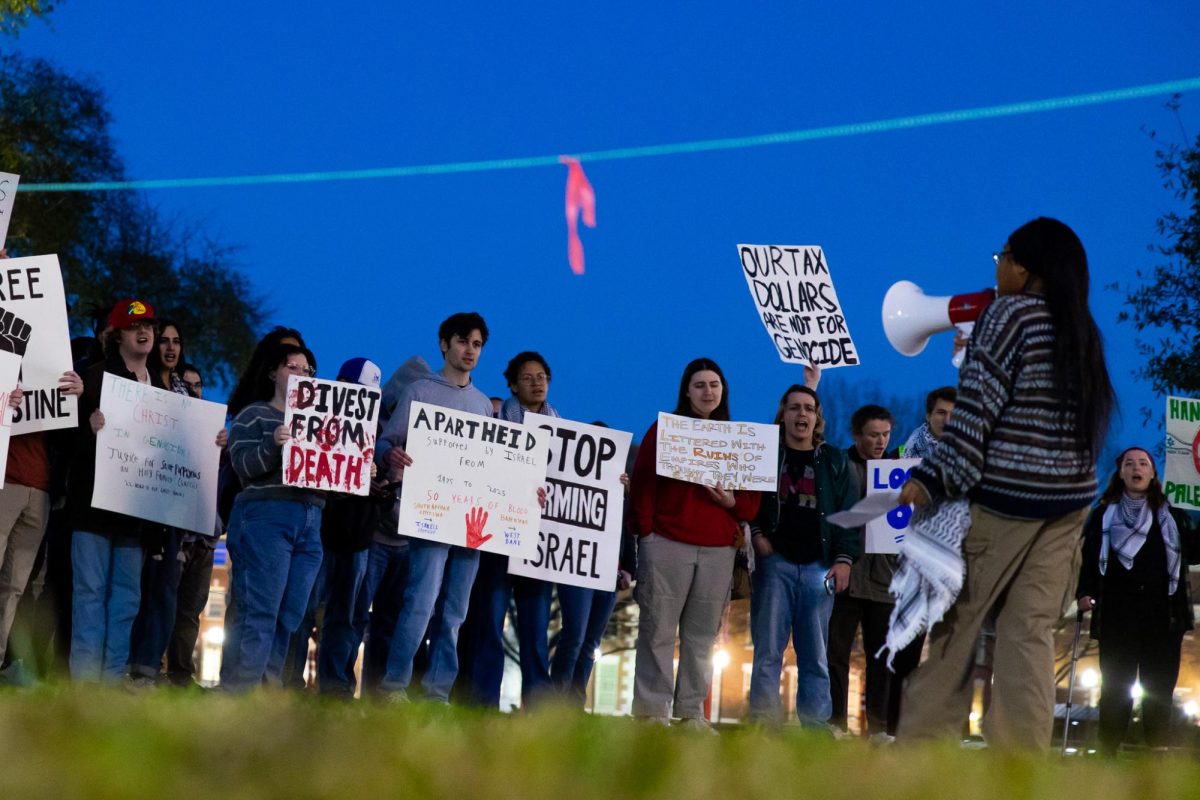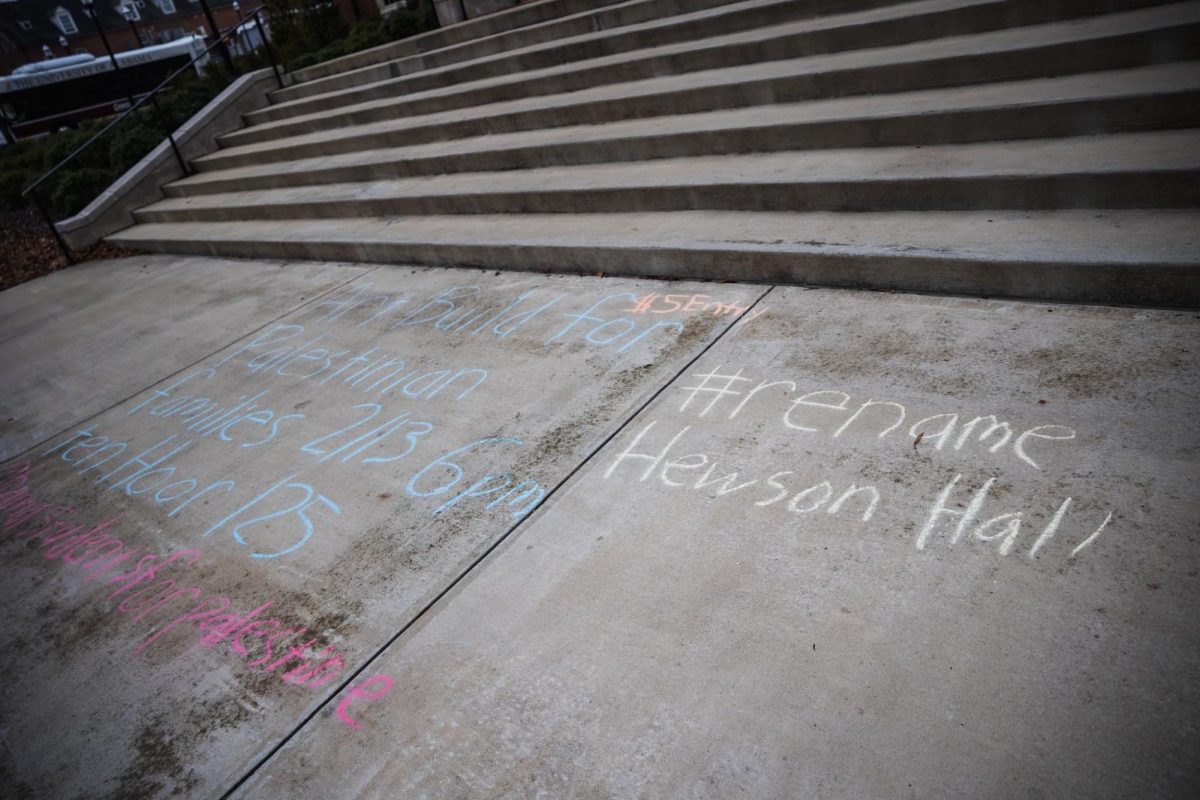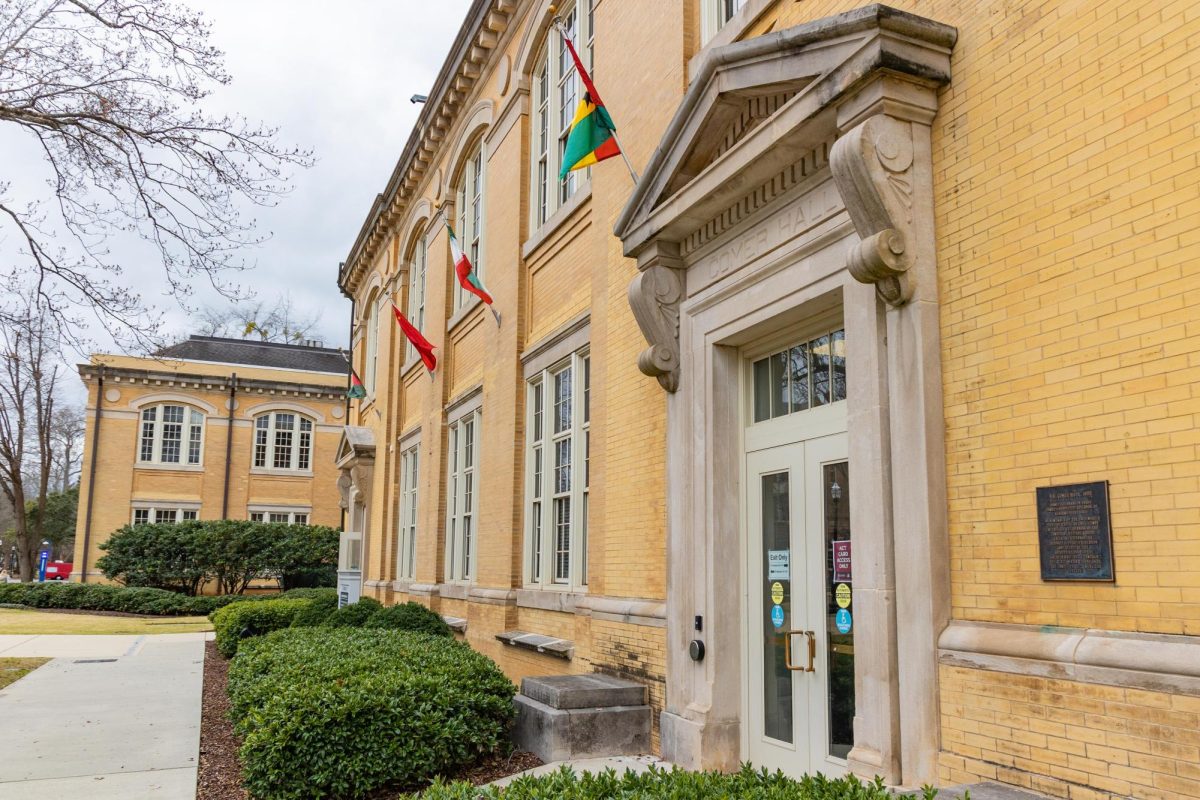One would think that rocket scientists would never find themselves out of work, but during the recent government shutdown, University of Alabama student and NASA employee and intern Liz Bowman struggled to come up with a backup plan.
“We were at work the day before the shutdown, and nobody actually expected it to shut down,” Bowman said.
On Oct. 1, the federal government entered a shutdown after Congress failed to pass appropriations legislation to ensure government operations could remain funded. The shutdown, which furloughed all federal government employees deemed nonessential, resulted from the failure of Democrat-controlled Senate and the Republican-controlled House of Representatives to reach a compromise on a continuing resolution, with Republicans seeking provisions meant to defund and delay key elements of the Affordable Care Act that was to go into effect on Oct. 1. Democrats pushed for what they called a clean continuing resolution, but the two chambers and the two parties were unable to reach a deal. As a result, roughly 800,000 federal emplyees were furloughed.
For the past two weeks Republicans and Democrats have swapped blame while passing legislation to end furloughs for certain parts of the government, including the military’s civilian personnel through the Pay Our Military Act. Neither party seemed to be budging as the shutdown drew on and the country inched ever closer to the debt ceiling.
Late Wednesday night, hours before the debt limit would be reached, a bill to reopen the government and raise the debt ceiling passed with bipartisan support in both houses of Congress. The bill was sent to the White House where President Obama signed it. The government reopened Thursday morning.
For many people, families and even students, the two weeks of furloughs and shutdown had noticeable effects.
Mission: Grounded
Bowman, a UA senior, was accepted for an internship position working on the programming for the firing room of the launch pad at Kennedy Space Center in Cape Canaveral, Fla. The firing room is where NASA aerospace engineers control a rocket’s launch. The day after finishing her training for the position, the government shut down, and Bowman was told to stay home.
“We were told to absolutely do zero work,” Bowman said in an interview with The Crimson White Tuesday. “If you do any sort of work, they might put you in jail. They’ll fine you. We were told we can’t even look at our email.”
Bowman said she was not even able to contact her advisors at other offices to ask them questions, and whenever she did hear from colleagues or advisors, there was no information on when work would resume or when she would receive her stipend payments.
“What we’ve been told is that if the shutdown lasts more than two weeks, [the date of our pay] would be affected,” Bowman said Tuesday. “I heard that the day before the shutdown. I haven’t heard from anybody since then because they can’t use their email. We’ve gone a good percentage of this internship without doing any work. I want to get paid, but honestly, everybody’s in the dark. I have my mentor’s cellphone [number], and she’s as in the dark as I am. And she’s the branch chief.”
Bowman said in situations similar to the government shutdown, organizations like NASA are often the first mentioned when the government talks about cutting programs and said during the shutdown she was not sure what her plans would be in the event that NASA closed permanently.
“Once I finish school, I would go work over there,” Bowman said. “But if there is no NASA, I guess I would have to go to school and maybe try to work for a commercial company. Everything would be way different. It would ruin my plans.”
With the shutdown lifted, Bowman may soon be able to return to work. For her, that work is part of larger dreams of working at NASA, dreams of worlds far away from government shutdowns.
“Being the first person on Mars would be my ultimate goal, but I feel like when I’m the right age, I wouldn’t really want to go through a commercial company,” Bowman said. “NASA is what feels right to me. They’re the ones actually doing stuff. They’re not going just for the hell of going. They’re going for missions, to discover things and to do experiments.”
Contingency Plans
Those with internships at government agencies were not the only UA students affected by the shutdown. Cadets and citizen employees of the University’s ROTC programs also faced fallout from the government furloughs.
Dan Gronke, Alabama ROTC’s human resource and recruiting operations officer, said the civilian Army employees, including himself, at the ROTC had to stay home when the shutdown first took effect.
“Initially, when the furlough went in, there was about a four-day period where everybody in the government was furloughed, but then they did the Pay Our Military Act, and that brought all the department of defense workers, and that’s what we are. It brought us back,” Gronke said Wednesday.
Gronke and Capt. Jack Benford, an assistant professor of military science, said the stipends that ROTC cadets receive from the Army come in twice-monthly payments, the next of which was set to be issued around Oct. 15. If the shutdown had continued, the cadets would not have received those stipends, but Gronke said he was hopeful that Congress would pass the deal.
“If the furlough and the shutdown went on further, there was a higher possibility of a negative effect,” Gronke said.
Even if cadets’ payments were delayed, however, Benford said the students would receive the full amounts when the furloughs ended.
“All these benefits and payments are retroactive,” Benford said. “They’re going to pay them back, so it’s not like they won’t get paid ever.”
In the meantime, Lt. Col. Ken Kemmerly, professor of military science, said the ROTC had drawn up creditors’ letters to send to any landlords or creditors to which cadets may owe payments. Kemmerly said the letter essentially informed the creditor of the potential delay in the cadet’s stipend payments due to the shutdown and asked that the creditor accommodate the student to be able to pay any bills once stipends are received. Kemmerly said he wanted to be clear that the ROTC had no special fund to help students pay bills during the furlough.
A similar letter was sent to the UA Office of Student Receivables in the event that the cadets’ scholarships, paid by the Army, were delayed. Kemmerly said student receivables has worked with cadets in the past when scholarship payments were delayed for reasons beyond the cadets’ control.
“Student receivables has historically been very accommodating and understanding, as long as we’re keeping them informed,” Kemmerly said.
Separate from the scholarships and stipends that cadets receive, but still affected by the shutdown, was the Army funding for training operations for ROTC.
Kemmerly and Gronke said a contingency plan was in place for a training exercise scheduled at a military camp in Mississippi with 17 or 18 other schools. The costs of the training exercise, including meals, travel expenses and costs associated with using the facilities, would normally be federal funds from the Army, Kemmerly said. Should the shutdown have continued however, the ROTC battalion would not have had access to the federal funds needed for the trip and had an alternate plan in place to do similar training exercises on land located closer to campus that is owned by the University.
Kemmerly said the alternate plan would have allowed the cadets to still receive the training. The environment would just be a little different.
“We said, ‘Hey, we will continue to train. We will just have to modify the training,’” Kemmerly said. “It would be like if the football team didn’t have their practice field available, so maybe they go inside the gym, and they continue to practice and train.”
Kemmerly said ROTC was not able to contract new cadets or grant scholarships during this period, but they worked with any interested students. He also said once the appropriations bill was approved by Congress, ROTC would move forward finalizing contracts and scholarships.
Benford said it was important to understand it was neither UA ROTC nor the Army that was withholding funding or stipends or scholarships.
“It’s a top-down funding approach, so it’s not like we have to hold this money; they have to give it to us, the federal government,” Benford said. “It starts at Congress. That’s really where all this stuff is pent up. So it’s not the Army. It’s not the University. It’s actually Congress. That’s where it starts.”








